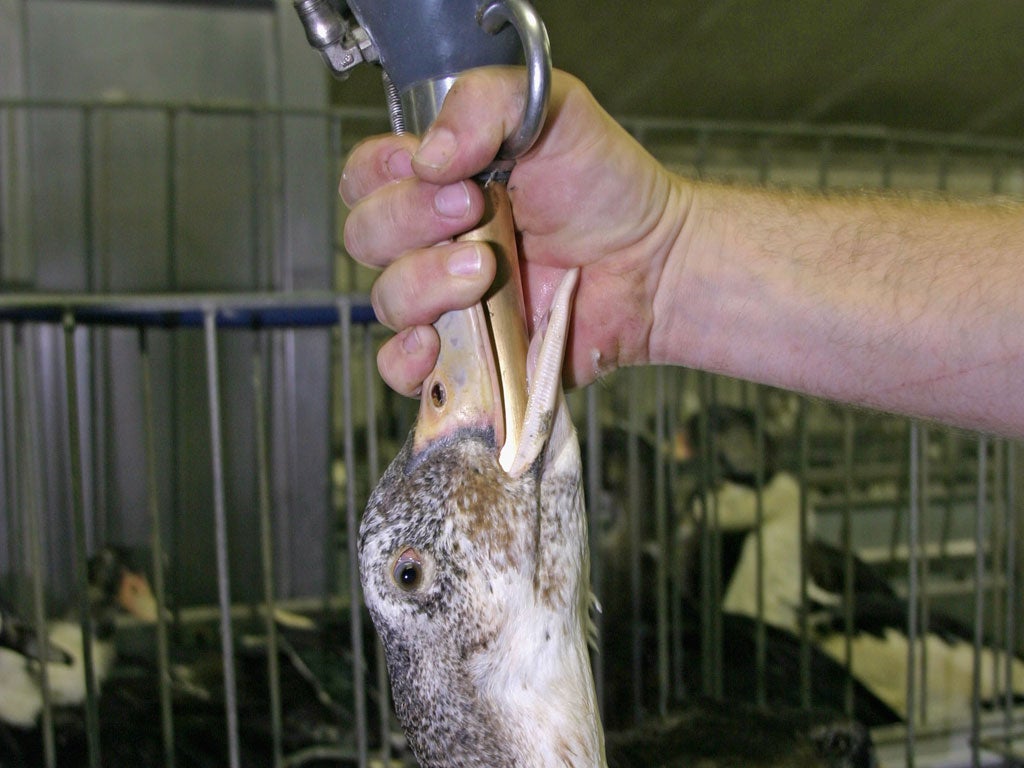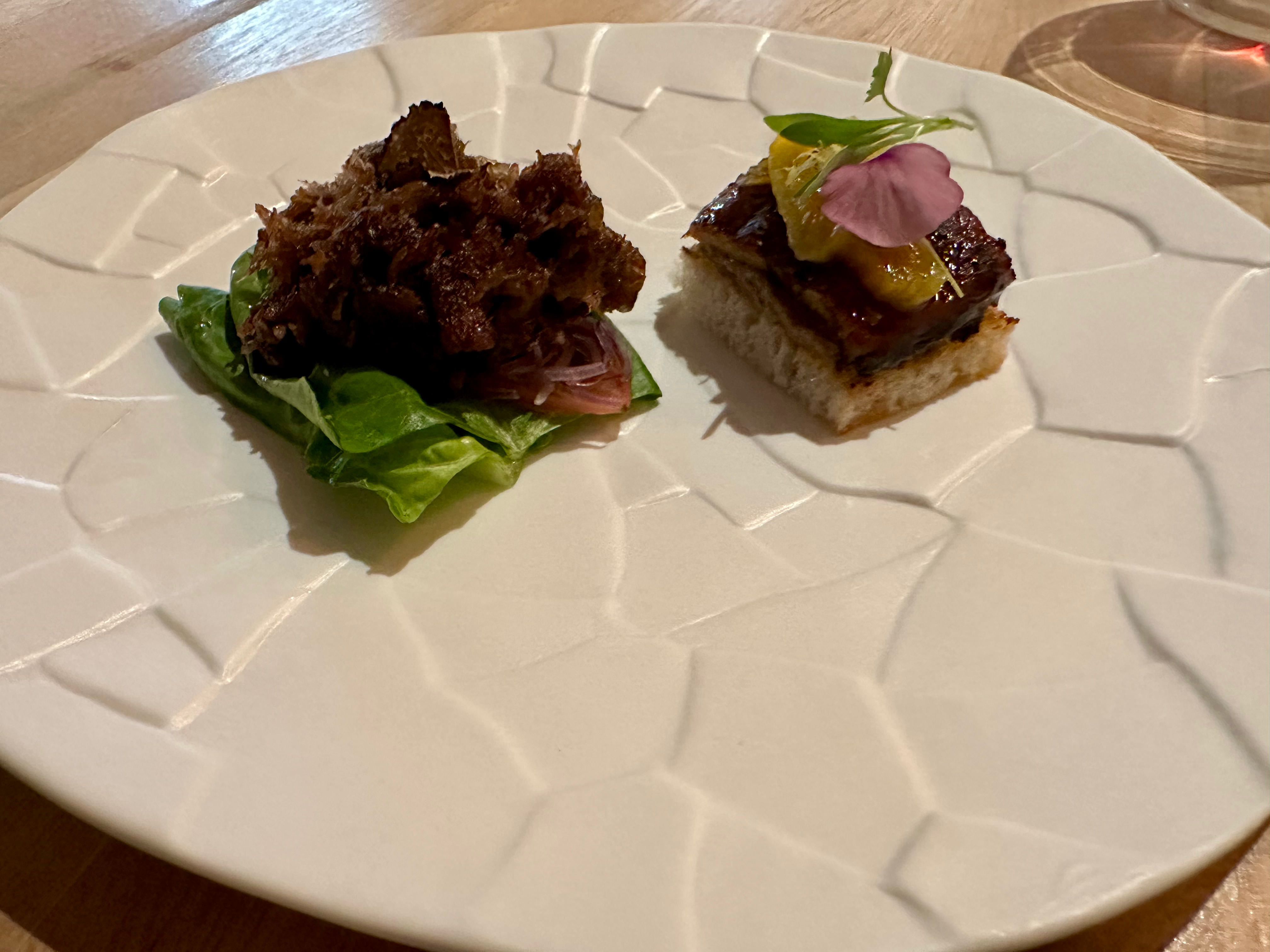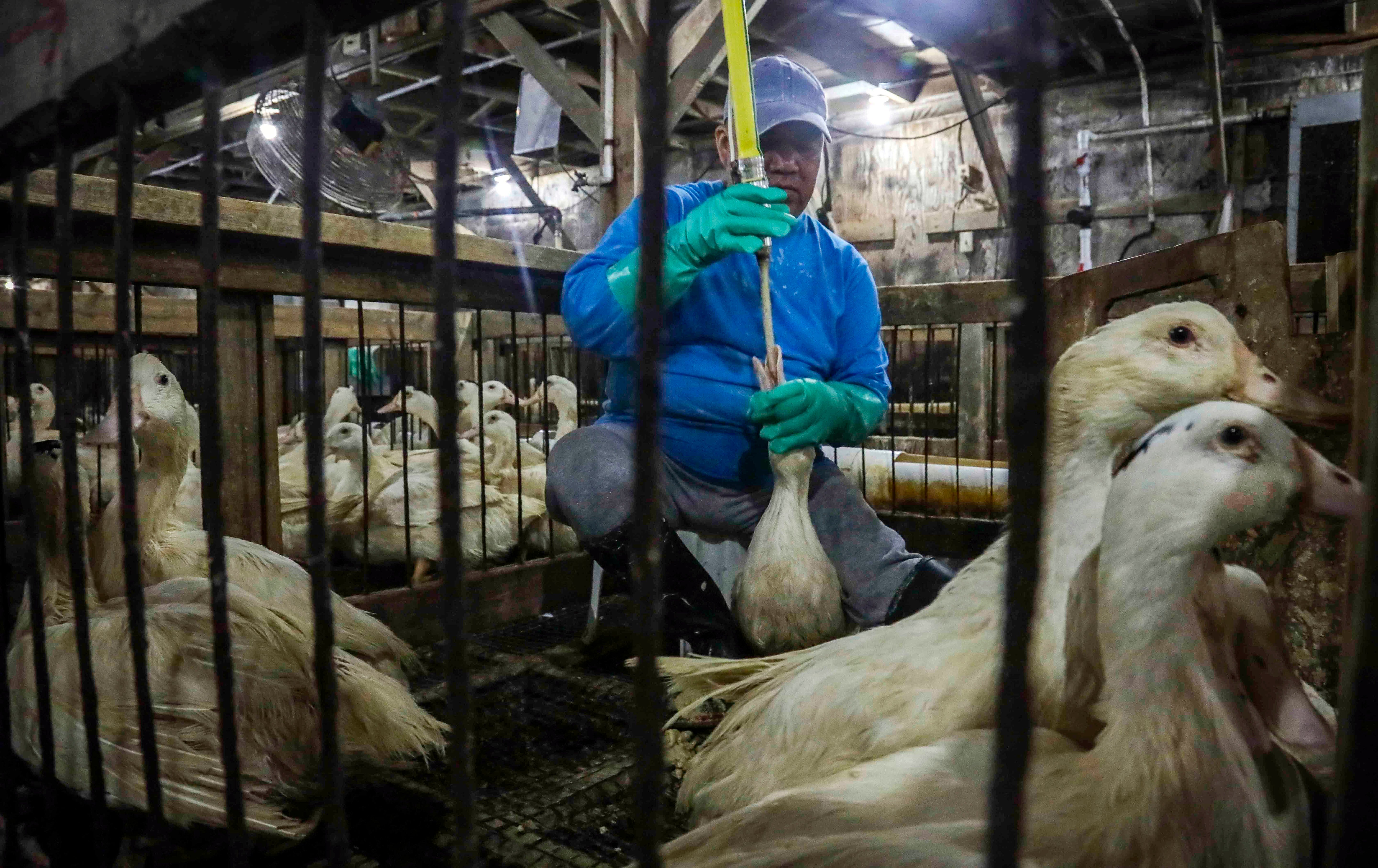Olympic Games to serve foie gras to VIP guests despite promoting ‘leaf over beef’ menu
Exclusive: Catering for hospitality packages in Paris will include paté considered so cruel that Labour has pledged to ban it

Organisers of this year’s Olympic Games will be serving VIP guests foie gras – a product that is made by force-feeding ducks and geese – despite promoting the menu as eco-friendly and mostly meat-free.
Thousands of dishes that include the paté will be offered to guests with premium hospitality packages at the Paris event, which begins on 26 July. Force-feeding birds to make foie gras, which translates as “fatty liver”, is considered so cruel that producing it in the UK is banned, and Labour has promised to ban foie gras imports if it wins the 4 July general election.
Olympics organisers say they aim to “deliver a taste of France in a responsible manner”, and claim to be “laser-focused on showcasing French food that is sourced, produced and consumed in a responsible way”.
To try to provide sustainable, environmentally friendly options, 60 per cent of the 13 million meals provided will be meat-free and plant-based.
However, despite the event’s organisers promoting “leaf over beef” and announcing that foie gras will not be offered to athletes in the Olympic Village or to general spectators, foie gras will feature on the hospitality menu.

The caterers for the Olympics said: “Foie gras will not be offered as a standalone dish within our culinary programme during the Olympic Games.
“However, some recipes may include foie gras as an ingredient, for example in patés and local specialties. These dishes will represent approximately 0.1 per cent of our overall menu offerings.”
Tickets for hospitality packages range from €85 (£72) to over €9,500 (£8,000).
On Location, which is providing food and drink at the Games, is selling tickets for a range of hospitality packages.
Its website boasts of deals that include champagne, stating that “an international gourmet menu featuring French regional signature dishes will be offered in the hospitality lounges”, and other packages that “feature international and French regional culinary specialties”.
Millions of ducks and geese each year are forced to consume unnatural quantities of feed until their livers swell to 10 times their natural size.
Each bird is force-fed or “gavaged” two or three times a day for several weeks, up to 63 times, until it is slaughtered.

Campaigners are calling for the Olympics to drop foie gras from its menus altogether.
Animal protection organisation Animal Equality, which has investigated the industry, says that birds used for foie gras are confined to wire cages and suffer from breathing difficulties and eye infections as well as broken wings and beaks.
University of Cambridge academic Professor Donald Broom, who has studied the “gavage” process, concluded in a 2017 paper: “The results of this report are unequivocal. The practice of force-feeding causes a sharp deterioration in the welfare of the ducks.”
Foie gras production is concentrated in France, Spain and Hungary, but is banned in Denmark, Germany, Poland, Norway and Turkey. In 2022, under Boris Johnson, the Conservatives U-turned on a plan to ban imports, outlined in the then government’s animal welfare action plan.
Abigail Penny, executive director of Animal Equality UK, said: “The Olympics committee should focus on celebrating our shared international interests: animal cruelty is not one of those interests. I strongly urge the committee to see reason and remove it from the menu.”
Michelin-starred French chef Alexis Gauthier, who has replaced foie gras in his top London restaurant with plant-based “faux gras”, said: “To envisage attendees eating the diseased liver of a tortured duck or goose at the Olympics is jarring, to say the least.
“I am immensely proud of my French heritage, but I am certainly not proud of the force-feeding of innocent animals, and the committee shouldn’t be either.”
The Olympic Games organising committee did not respond to requests for comment.
Join our commenting forum
Join thought-provoking conversations, follow other Independent readers and see their replies
Comments
Bookmark popover
Removed from bookmarks